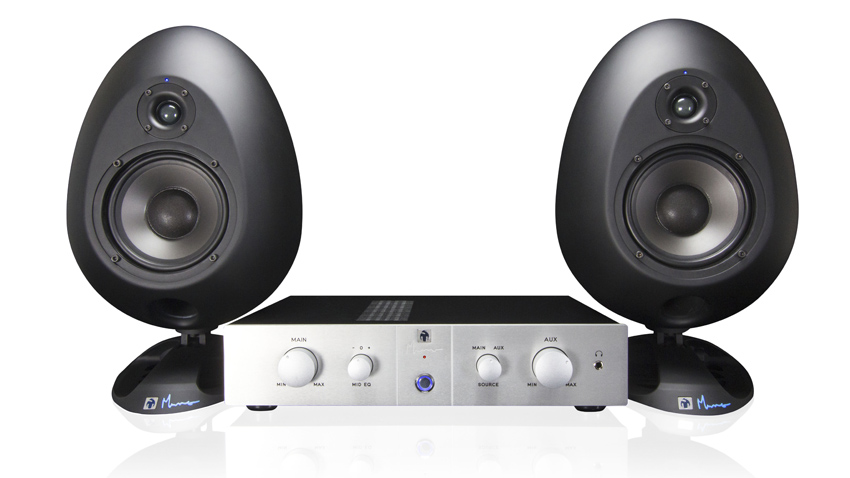Munro Sonic releases Egg150 Active Monitoring System
Does this speaker setup break new ground?

Want all the hottest music and gear news, reviews, deals, features and more, direct to your inbox? Sign up here.
You are now subscribed
Your newsletter sign-up was successful
Our five-star review of sE Munro's original Egg150 monitors should be enough to tell you how highly we rate them, but now new speaker brand Munro Sonic is seeking to make some improvements.
The Egg150 'Active Monitoring System' comprises not only the speakers but also a separate control unit and amplifier that's matched to the Egg drive units. This features source select inputs, active analogue crossovers, LF and HF trim pot EQ for location setup, and a redefined, three-position, mid-band control switch to emulate the mid-range response of both hi-fi and NS10-type speakers.
You can find out more on the Munro Sonic website. The Egg150 Active Monitoring System is available now priced at £2399/$2999.
Egg150 Active Monitoring System features
- Unique monocoque shell construction (rigid and resonant neutral)
- Near zero diffraction interference (smooth frequency response)
- No internal standing waves (greatly reduced smearing)
- Perfect bass port integration (superb transient response)
- Free standing control unit and integrated amplification with 3m matched speaker cables
- Dual input switching and level control
- Ultra-fast and low distortion (4*50W) with 100W/Channel headroom indicator
- Precise 'sweet spot' - unique LED locator guide beams
- Integrated base with adjustable vertical alignment (allows for perfect sweet spot in both vertical and horizontal planes)
- Precision trim pots for bass (LF) and High Frequency (HF) calibration
- Critical Mid Frequency equalisation for 'Hard', 'Soft' or 'Reference' (0) listening
Want all the hottest music and gear news, reviews, deals, features and more, direct to your inbox? Sign up here.



I’m the Deputy Editor of MusicRadar, having worked on the site since its launch in 2007. I previously spent eight years working on our sister magazine, Computer Music. I’ve been playing the piano, gigging in bands and failing to finish tracks at home for more than 30 years, 24 of which I’ve also spent writing about music and the ever-changing technology used to make it.